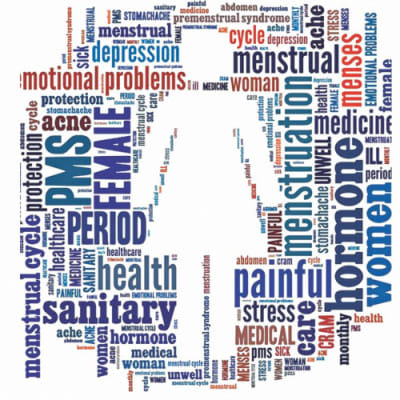Menstruation matters to everyone, everywhere

14-year-old Jamila woke up with a cramping sensation in her lower back and lower abdomen. Initially the pain was dull but it was something she had never experienced before. In a short time the pain went from being severely annoying to extremely painful. The pain accompanied by the feeling of constipation and bloating wasn't making her feel any better either. Lying flat on her stomach, she had already considered the possibilities of having a rare chronic life-threatening disease. Finally discovering that she is bleeding made her realise that she just entered puberty—something her mother kept warning her about.
Dr Mariha Alam Chowdhury (MBBS, FCPS (Obgyn), FIAOG, MRCOG-1 (UK), DMU, CCD), Obstetrics and Gynecology, Consultant of Praava Health, says that menstruation is the process through which the female body starts releasing unfertilised eggs along with the lining of the uterus at intervals of one lunar month after puberty. A fetus in the mother's womb contains dormant eggs. After being born, the eggs still remain dormant in a newborn child but compared to the count in the fetus the egg count depletes.
At birth, baby girl Jamila typically had between one to two million eggs in her ovaries. As she started growing she started losing these eggs. And now that she reached puberty, during each month of her menstruation she will start releasing one of these eggs as they have not been fertilised. Over the course of a lifetime through this menstruation process the female body loses all its eggs, until reaching menopause. Menopause happens when ovaries no longer have eggs to produce a child.
Every month female hormones regularly prepare the uterus for pregnancy and in case there is no pregnancy, fall in the level of hormone leads to menstruation. This fall and rise of hormone is what is also responsible for ovulation.
For a teenager like Jamila the first phase of “feminine” growth happened with breast development. The second stage of growth happened with pubic and axillary hair development; and the last stage was menstruation. Menstruation cycle usually starts within the age of 10 to 12. Known as precautious puberty, kids having menstruation, spotting or breast growth at the age of 7 to 8 is concerning. At the same time, when young girls like Jamila don't show any signs of menstruation till the age of 14, it is considered as delayed puberty. In both the cases of precautious and delayed puberty, it is advised to consult a gynecologist.
A regular menstrual cycle is considered to be 28-30 days. If the menstrual cycle is too short (less than 28 days) or too long (more than 35 days) it is advised to consult a doctor. For sexually active female individuals, in order to maintain a regular menstrual cycle while using contraceptives, it is recommended to use regular contraceptive pills instead of emergency contraceptives. But it is highly recommended to consult a doctor before taking any contraceptives.
Menstruation symptoms are mostly subtle and vary from woman to woman. In many cases, out-of-whack hormones can make your skin super oily followed by major acne outbreak. At any given time a menstruating women can expect to experience ovulation pain starting from one side of her lower abdomen during mid-cycle ovulation, breast tightness and fullness, and high vaginal discharge. While these symptoms are normal for some women, it can be unbearable for others. It is recommended to immediately see a doctor if menstrual flow is heavier than normal or if you are facing severe pain that is hampering your daily activities.
When asked about how to ease menstruation pain, Dr Mariha Alam Chowdhury recommends that ensuring proper hygiene and eating healthy is the key to easing menstruation pain. She also recommends keeping the vaginal area clean and dry as there remains risk of vaginal infection or urine infection. It is also recommended to avoid sexual intercourse during menstruation as it can cause an ascending infection.
It has been said that “There is nothing called having a mild or enjoyable period, and not even the reminder of creating life can make it a magical experience”. Menstruation is not a disease. It is important that young girls like Jamila grow up in a society where menstruation is no longer a taboo. This Menstrual Hygiene Day let us aim to create a society where women can speak freely, without being self-conscious, about that “time of the month”.
Mehtaj Reza is a contributor to The Daily Star.

 For all latest news, follow The Daily Star's Google News channel.
For all latest news, follow The Daily Star's Google News channel. 



Comments